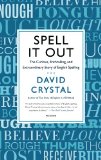Summary | Excerpt | Reviews | Beyond the book | Read-Alikes | Genres & Themes | Author Bio

Translation and the Meaning of Everything
by David BellosFunny and surprising on every page, Is That a Fish in Your Ear? offers readers new insight into the mystery of how we come to know what someone else means - whether we wish to understand Astérix cartoons or a foreign head of state. Using translation as his lens, David Bellos shows how much we can learn about ourselves by exploring the ways we use translation, from the historical roots of written language to the stylistic choices of Ingmar Bergman, from the United Nations General Assembly to the significance of James Cameron's Avatar. Is That a Fish in Your Ear? ranges across human experience to describe why translation sits deep within us all, and why we need it in so many situations, from the spread of religion to our appreciation of literature; indeed, Bellos claims that all writers are by definition translators. Written with joie de vivre, reveling both in misunderstanding and communication, littered with wonderful asides, it promises any reader new eyes through which to understand the world.
In the words of Bellos: "The practice of translation rests on two presuppositions. The first is that we are all different: we speak different tongues, and see the world in ways that are deeply influenced by the particular features of the tongue that we speak. The second is that we are all the same - that we can share the same broad and narrow kinds of feelings, information, understandings, and so forth. Without both of these suppositions, translation could not exist. Nor could anything we would like to call social life. Translation is another name for the human condition."
Bellos is enthusiastic about and dedicated to his subject, but in the quiet, careful tradition of an academic. Is That a Fish in Your Ear? does not read like an attempt to bring the power of translation to the masses - as Truss did with punctuation - but rather like an attempt to bring the power of the masses to translation. In many ways, Bellos has drawn a flow chart with Fish - one that distills everything down to only being as good as one's ability to translate it... Towards the conclusion, however, he draws back and gives readers a larger portrait of translation's role in global society and the human condition. This is where Bellos shines as an author, and demonstrates his knowledge and passion to a wider audience...continued
Full Review
(649 words)
This review is available to non-members for a limited time. For full access,
become a member today.
(Reviewed by Elizabeth Whitmore Funk).
It is a universally acknowledged truth that Google has changed the world we live in, and one of their newer features, Google Translate, is also likely to have a big impact on the future of language and translation.
Traditionally, mechanical translation has relied on systematic matching of word meanings between languages, and reordering words based on different grammatical and structural rules. This literal methodology is faulty and full of pitfalls. The vocabularies and grammars of languages do not always line up in perfect or equivalent ways, which - though the linguistic diversity is beautiful - can make mechanical translation a frustrating process. According to an article in Slate, this is "the kind of process that translates ...
This "beyond the book" feature is available to non-members for a limited time. Join today for full access.

If you liked Is That a Fish in Your Ear?, try these:

by Gaston Dorren
Published 2019
Witty, fascinating and utterly compelling, Babel will change the way you look at and listen to the world and how it speaks.

by David Crystal
Published 2014
The fascinating and surprising history of English spelling from David Crystal, everyone's favorite expert logophile.
It is always darkest just before the day dawneth
Click Here to find out who said this, as well as discovering other famous literary quotes!